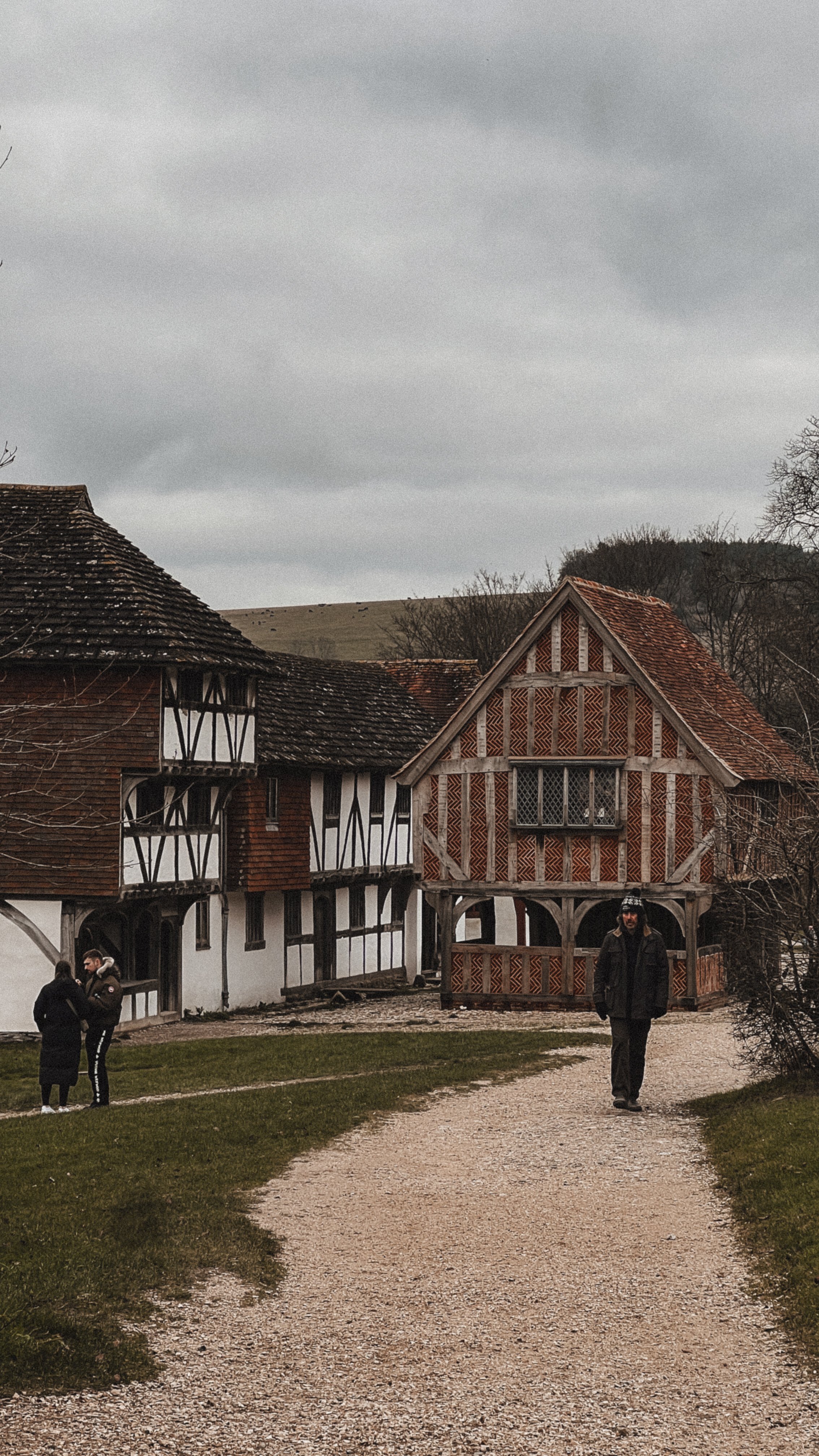Wassail, Wassail
Have you ever heard of this word before? Wassailing. I certainly never had. It’s a tradition that includes hanging toast on trees and carrying a large goblet of wine door-to-door, or to a nearby orchard. Yes, you read that right! Confused? Don’t worry, I am going to tell you all about it…
We arrived at Weald & Downland Living Museum late Saturday afternoon. Stretched across 40 acres, the museum site offered visitors a chance to see houses from Tudor to Victorian period. Most of the buildings were actual homes, most were in disrepair and were going to be torn down. The founders had the foresight to see that these would be valuable educational tools, and bought them (or had them donated) to this lovely area of Singleton, Chichester. The staff, most of whom are volunteers, were so warm and welcoming. They wanted to make sure you did not miss out on anything. Their friendliness was contagious and everybody made us feel so comfortable. Upon our arrival, we were early for the next Wassailing showing, so we hit the cafe (got to fuel up) and enjoyed the most beautiful view overlooking the large pond. The living museum is evenly spaced and nothing is too far away from each other, so you’ll have plenty of time to get from one area to the next.
Feeling well fed, we casually walked over to the Wassailing meeting spot. We didn’t know what to expect. The tradition has pagan roots (dating back to Anglo-Saxon period) and has been practiced in Britain for centuries. It involves a communal bowl, full of cider or ale, that is brought to people’s doors. You would drink from it and perhaps give something to the wassailers (food, drink, wool etc) as payment. Some wassailing would take place around the apple orchards. It is a time of celebration, with music, singing, drinking and merrymaking during the coldest, harshest winter months. The community also takes part in hullabaloo, banging pots and pans (anything that will make noise) and cheering. The purpose is to encourage the spirits to grant a bountiful harvest.
The goblet filled with cider, is offered to the community to drink from. This goblet is hand-carved from an apple tree.
Weald and Downland Museum. It is located near Chichester, West Sussex.
The wassailers began reciting songs and talking about the history of the tradition. We spectators were led from place to place within the museum, stopping every now and then to sing together a classic wassail folk song. The culmination of the event took place by the orchard, where volunteers handed out cups of apple and spiced apple cider to us. We sang together in merriment and small rolls of toasted bread were placed into the trees. The idea being that robins would eat the toast and it encourages the ecosystem of them eating the insects on the apple trees. Small drops of cider were also poured onto the base of the tree, so that the roots could soak it all up. The cider is meant to appease the “Apple Tree Man,” the spirit that lives within the trees. This spirit was believed to help boost a healthy harvest crop.
We drank our ciders and joined in the cheering and banging of pans. It was such an interesting tradition to have been involved in. I had discovered it completely by accident, but I can’t wait to celebrate again next year. That feeling of being a part of a community, it always feels special. Here we were, encouraging nature to take its course and thrive. We group of strangers had come together and were part of a long-standing legacy (even if it was new to me). The celebration came to an end, we warmed ourselves by the fire and explored the homes of past eras. We lost ourselves in the different periodic homes. Each house had a volunteer, clothed in period dress, and they would happily explain in detail about life during those times. Every now and then you’d hear the odd cry of ‘Wassail, wassail,’ followed by the quick response of ‘Drink ale.’
Our day out was such a pleasant one, we were one of the last people to leave. Even then, there was no rush to have us exit, the people there want you to enjoy your time. Weald & Downland have done extraordinary work in preserving buildings that would have been long forgotten. You will marvel at the technological advancements and craftsmanship that go into each design. It makes you wonder how people in early settlement periods were able to do so much with fewer materials or ease. To paraphrase a friend of mine, “The people were built differently back then!” And so were the architectural designs.
Before chimneys were introduced into homes, the fires were formed in the middle of the room. Windows (without glass) were built to allow ventilation. It did mean that homes couldn’t build a second floor above these fires.
Grab a coffee and explore the timber buildings of Tudor era.
Dip rosemary (or any herb) into the cider and flick it on the trees and animals to bless a good harvest.
Wassail events take place throughout the UK, often within the first three weeks of January. Have a look at nearby places that may celebrate it or have a look at historic websites.
Weald & Downland Living Museum is open daily from 10:30AM - 4:00PM
Find more info here: Plan Your Visit - Weald & Downland Living Museum (wealddown.co.uk)






